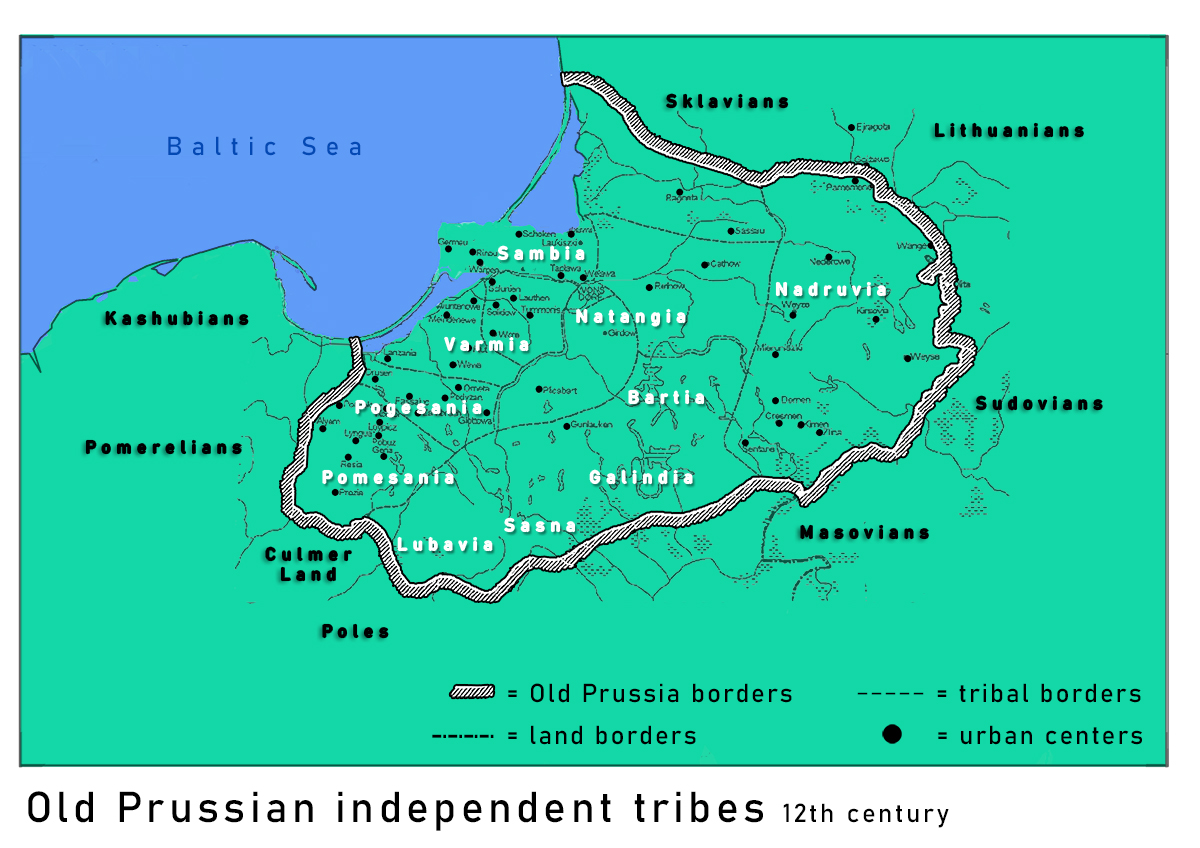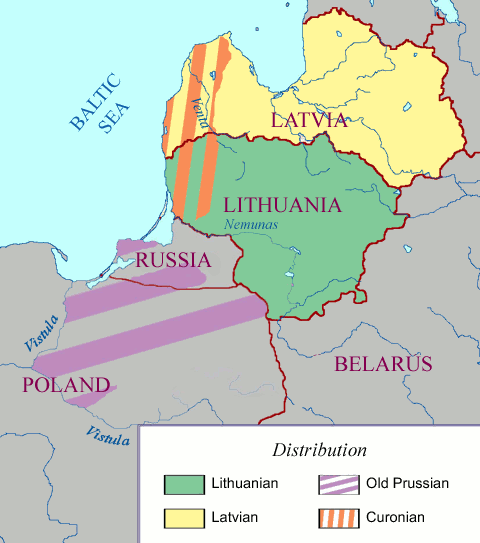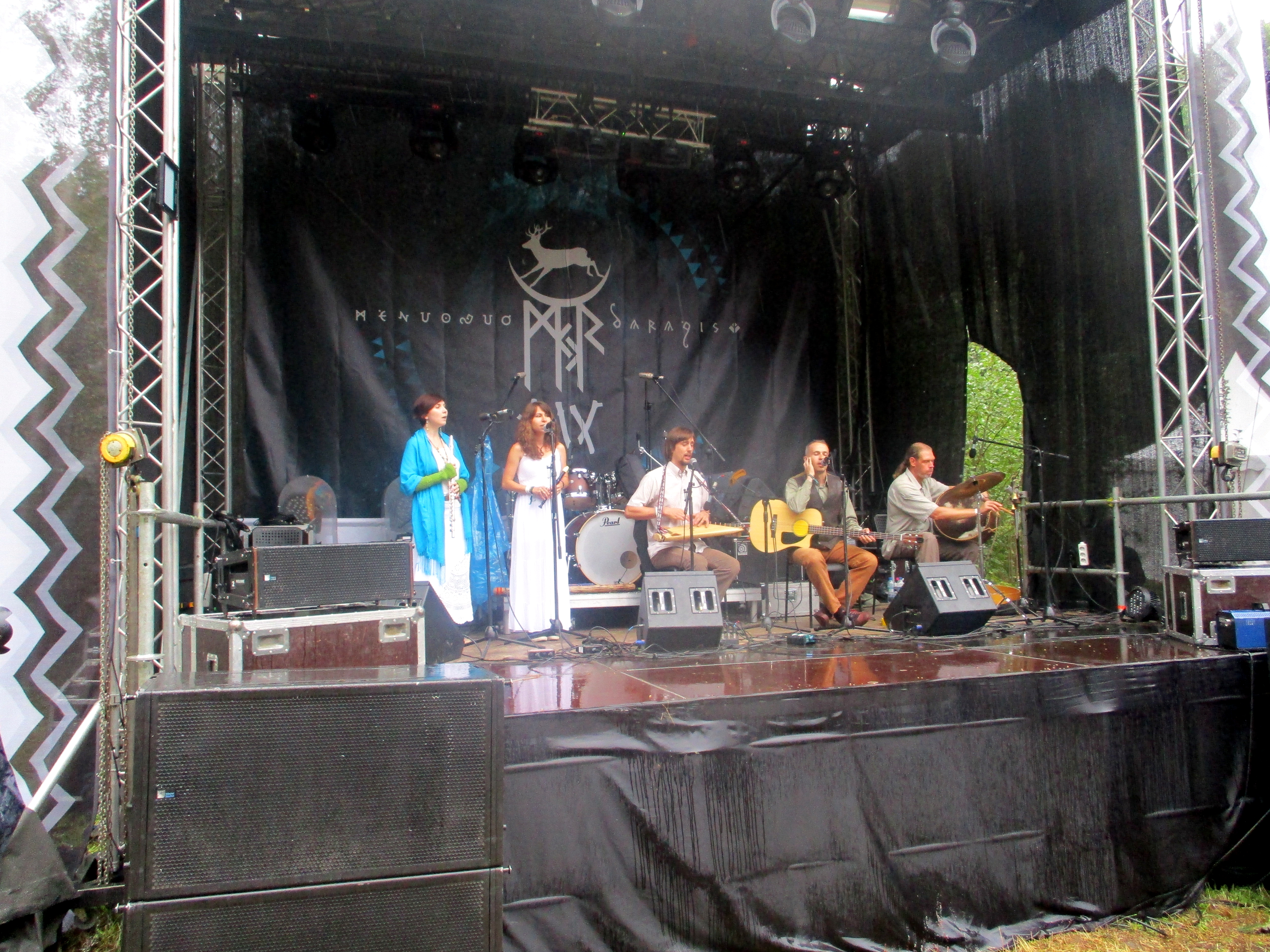|
Galindia
Galindians were two distinct, and now extinct, tribes of the Balts. Most commonly, Galindians refers to the Western Galindians who lived in the southeast part of Prussia. Less commonly, it is used for a tribe that lived in the area of what is today Moscow. The name "Galinda" is thought to derive from the Baltic word *''galas'' ("the end"), alluding to the fact that they settled for some time further west and further east than any other Baltic tribe. Western Galindians The Western Galindians ( Old Prussian: *''Galindis'',An asterisk placed before the word means that it is reconstructed and is therefore not attested. Latin: ''Galindae'') – at first a West Baltic tribe, and later an Old Prussian clan – lived in Galindia, roughly the area of present-day Masuria but including territory further south in what would become the Duchy of Masovia. The region lay adjacent to the territory of the Yotvingians, which is today in Podlaskie Voivodeship.The name ''Galind''- is probably de ... [...More Info...] [...Related Items...] OR: [Wikipedia] [Google] [Baidu] |
Balts
The Balts or Baltic peoples ( lt, baltai, lv, balti) are an ethno-linguistic group of peoples who speak the Baltic languages of the Balto-Slavic branch of the Indo-European languages. One of the features of Baltic languages is the number of conservative or archaic features retained. Among the Baltic peoples are modern-day Lithuanians and Latvians (including Latgalians) — all Eastern Balts — as well as the Old Prussians, Yotvingians and Galindians — the Western Balts — whose languages and cultures are now extinct. Etymology Medieval German chronicler Adam of Bremen in the latter part of the 11th century AD was the first writer to use the term "Baltic" in reference to the sea of that name.Bojtár page 9. Before him various ancient places names, such as Balcia, were used in reference to a supposed island in the Baltic Sea. Adam, a speaker of German, connected ''Balt-'' with ''belt'', a word with which he was familiar. In Germanic languages there was some form of ... [...More Info...] [...Related Items...] OR: [Wikipedia] [Google] [Baidu] |
Old Prussians
Old Prussians, Baltic Prussians or simply Prussians ( Old Prussian: ''prūsai''; german: Pruzzen or ''Prußen''; la, Pruteni; lv, prūši; lt, prūsai; pl, Prusowie; csb, Prësowié) were an indigenous tribe among the Baltic peoples that inhabited the region of Prussia, at the south-eastern shore of the Baltic Sea between the Vistula Lagoon to the west and the Curonian Lagoon to the east. The Old Prussians, who spoke an Indo-European language now known as Old Prussian and worshipped pre-Christian deities, lent their name, despite very few commonalities, to the later, predominantly Low German-speaking inhabitants of the region. The duchy of the Polans under Mieszko I, which was the predecessor of the Kingdom of Poland, first attempted to conquer and baptize the Baltic tribes during the 10th century, but repeatedly encountered strong resistance. Not until the 13th century were the Old Prussians subjugated and their lands conquered by the Teutonic Order. The remaining Old ... [...More Info...] [...Related Items...] OR: [Wikipedia] [Google] [Baidu] |
Masuria
Masuria (, german: Masuren, Masurian: ''Mazurÿ'') is a ethnographic and geographic region in northern and northeastern Poland, known for its 2,000 lakes. Masuria occupies much of the Masurian Lake District. Administratively, it is part of the Warmian-Masurian Voivodeship (administrative area/province). Its biggest city, often regarded as its capital, is Ełk (Elk). The region covers a territory of some 10,000 km2 which is inhabited by approximately 500,000 people. History East Germanic tribes The first known people in today's Mazuria were East Germanic tribes, such as the Sciri. Ptolemy mentioned Galindians (Koine Greek: Galindoi – Γαλίνδοι) in the 2nd century AD. From the 6th/7th century until the 17th century the former central part of the Galindian tribe continued to exist as the Old Prussian clan of *Galindis. The language of the Old Prussians in Galindia became extinct by 17th century, mainly because of the 16th centuries influx of Protestants seeking refuge ... [...More Info...] [...Related Items...] OR: [Wikipedia] [Google] [Baidu] |
East Baltic Languages
The Baltic languages are a branch of the Indo-European language family spoken natively by a population of about 4.5 million people mainly in areas extending east and southeast of the Baltic Sea in Northern Europe. Together with the Slavic languages, they form the Balto-Slavic branch of the Indo-European family. Scholars usually regard them as a single subgroup divided into two branches: Western Baltic (containing only extinct languages) and Eastern Baltic (containing at least two living languages, Lithuanian, Latvian, and by some counts including Latgalian and Samogitian as separate languages rather than dialects of the two aforementioned languages). The range of the Eastern Baltic linguistic influence once possibly reached as far as the Ural Mountains, but this hypothesis has been questioned. Old Prussian, a Western Baltic language that became extinct in the 18th century, has possibly retained the greatest number of properties from Proto-Baltic. Although related, Lit ... [...More Info...] [...Related Items...] OR: [Wikipedia] [Google] [Baidu] |
Old Prussian
Old Prussian was a Western Baltic language belonging to the Baltic branch of the Indo-European languages, which was once spoken by the Old Prussians, the Baltic peoples of the Prussian region. The language is called Old Prussian to avoid confusion with the German dialects of Low Prussian and High Prussian and with the adjective ''Prussian'' as it relates to the later German state. Old Prussian began to be written down in the Latin alphabet in about the 13th century, and a small amount of literature in the language survives. Classification and relation to other languages Old Prussian is an Indo-European language belonging to the Baltic branch. It is considered to be a Western Baltic language. Old Prussian was closely related to the other extinct Western Baltic languages, namely Sudovian, West Galindian and possibly Skalvian and Old Curonian. Other linguists consider Western Galindian and Skalvian to be Prussian dialects. It is related to the Eastern Baltic languages suc ... [...More Info...] [...Related Items...] OR: [Wikipedia] [Google] [Baidu] |
Moshchiny Culture
The Moshchiny culture (russian: Мощинская культура) was an archaeological culture of the Iron Age from the 4th to the 7th century in present-day western Russia. It is the easternmost known Baltic culture. Distribution area The settlement area was located in the forest areas at the upper Dnepr and the upper Oka in today's Russian Oblast Kaluga, Tula, Oryol and Smolensk. It is named after a settlement near the village '' Moshchiny '' (russian: Мощины) in the Mosalsky District in the Kaluga Oblast. (russian: Мощины) Kaluga Oblast. Russia. Genesis The Moshchiny culture emerged in the 4th century from the ''[...More Info...] [...Related Items...] OR: [Wikipedia] [Google] [Baidu] |
Prussia (region)
Prussia (Old Prussian: ''Prūsa''; german: Preußen; lt, Prūsija; pl, Prusy; russian: Пруссия, tr=Prussiya, ''/Prussia/Borussia'') is a historical region in Europe on the south-eastern coast of the Baltic Sea, that ranges from the Vistula delta in the west to the end of the Curonian Spit in the east and extends inland as far as Masuria. Tacitus's '' Germania'' (98 AD) is the oldest known record of an eyewitness account on the territory and its inhabitants. Pliny the Elder had already confirmed that the Romans had navigated into the waters beyond the ''Cimbric peninsula'' (Jutland). Suiones, Sitones, Goths and other Germanic people had temporarily settled to the east and west of the Vistula River during the Migration Period, adjacent to the Aesti, who lived further to the east. Overview The region's inhabitants of the Middle Ages have first been called ''Bruzi'' in the brief text of the Bavarian Geographer and since been referred to as Old Prussians, who, beginnin ... [...More Info...] [...Related Items...] OR: [Wikipedia] [Google] [Baidu] |
Russia
Russia (, , ), or the Russian Federation, is a transcontinental country spanning Eastern Europe and Northern Asia. It is the largest country in the world, with its internationally recognised territory covering , and encompassing one-eighth of Earth's inhabitable landmass. Russia extends across eleven time zones and shares land boundaries with fourteen countries, more than any other country but China. It is the world's ninth-most populous country and Europe's most populous country, with a population of 146 million people. The country's capital and largest city is Moscow, the largest city entirely within Europe. Saint Petersburg is Russia's cultural centre and second-largest city. Other major urban areas include Novosibirsk, Yekaterinburg, Nizhny Novgorod, and Kazan. The East Slavs emerged as a recognisable group in Europe between the 3rd and 8th centuries CE. Kievan Rus' arose as a state in the 9th century, and in 988, it adopted Orthodox Christianity from t ... [...More Info...] [...Related Items...] OR: [Wikipedia] [Google] [Baidu] |
Old East Slavic
Old East Slavic (traditionally also Old Russian; be, старажытнаруская мова; russian: древнерусский язык; uk, давньоруська мова) was a language used during the 9th–15th centuries by East Slavs in Kievan Rus' and its successor states, from which the Belarusian, Russian, Rusyn, and Ukrainian languages later evolved. Terminology The name of the language is known as ''Old East Slavic'', in reference to the modern family of East Slavic languages. Its original speakers were the Slavic tribes inhabiting territories of today's Belarus, the western edge of Russia, and western and central Ukraine. However, the term ''Old East Slavic'' is not universally applied. The language is traditionally also known as ''Old Russian'', (; russian: древнерусский язык, translit=drevnerusskij jazyk), however the term has been described as a misnomer, because the initial stages of the language which it denotes predate the dialec ... [...More Info...] [...Related Items...] OR: [Wikipedia] [Google] [Baidu] |
Protva
The Protva () is a river in Moscow and Kaluga Oblasts in Russia, left tributary of the Oka. It is long, and has a drainage basin of .«Река ПРОТВА» Russian State Water Registry The area of its basin is . The Protva freezes up in early December and stays icebound until early April. Its main tributary is the Luzha. The towns of , , |
Baltic Tribes C 1200
Baltic may refer to: Peoples and languages * Baltic languages, a subfamily of Indo-European languages, including Lithuanian, Latvian and extinct Old Prussian *Balts (or Baltic peoples), ethnic groups speaking the Baltic languages and/or originating from the Baltic countries *Baltic Germans, historical ethnic German minority in Latvia and Estonia *Baltic Finnic peoples, the Finnic peoples historically inhabiting the area on the northeastern side of the Baltic sea Places Northern Europe * Baltic Sea, in Europe * Baltic region, an ambiguous term referring to the general area surrounding the Baltic Sea * Baltic states (also Baltic countries, Baltic nations, Baltics), a geopolitical term, currently referring to Estonia, Latvia and Lithuania * Baltic Provinces or governorates, former parts of the Swedish Empire and then Russian Empire (in modern Latvia, Estonia) * Baltic Shield, the exposed Precambrian northwest segment of the East European Craton * Baltic Plate, an ancient tectoni ... [...More Info...] [...Related Items...] OR: [Wikipedia] [Google] [Baidu] |
Mozhaysk
MozhayskAlternative transliterations include ''Mozhaisk'', ''Mozhajsk'', ''Mozhaĭsk'', and ''Možajsk''. ( rus, Можа́йск, p=mɐˈʐajsk) is a town and the administrative center of Mozhaysky District in Moscow Oblast, Russia, located to the west of Moscow, on the historic road leading to Smolensk and then to Poland. Population: History First mentioned in 1231 as an appanage of Chernigov; A theory says Mozhaysk took its name from the Mozhay (Mozhaya) River, whose name could be of Baltic origin (compare Lithuanian ''mažoji'' "small" - in contrast to the larger Moskva River nearby). Later Mozhaysk became an important stronghold of the Smolensk dynasty, in the 13th century ruled by Duke (later Saint) Theodore the Black. Muscovites seized Mozhaysk in 1303, but in the course of the following century had serious troubles defending it against Algirdas (Grand Duke of Lithuania from 1345 to 1377). A younger brother of the ruling Grand Duke of Moscow usually held the Principality ... [...More Info...] [...Related Items...] OR: [Wikipedia] [Google] [Baidu] |






